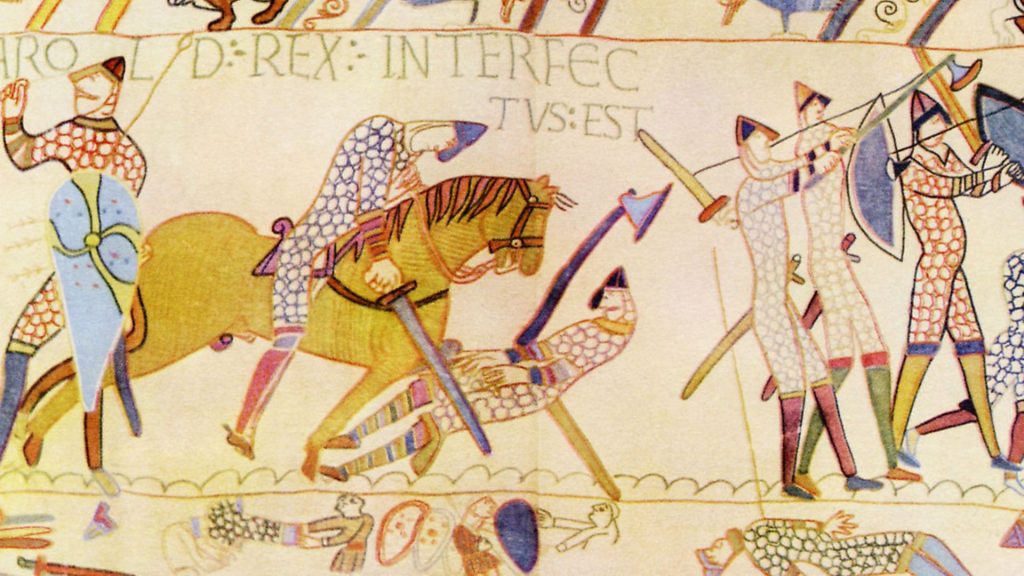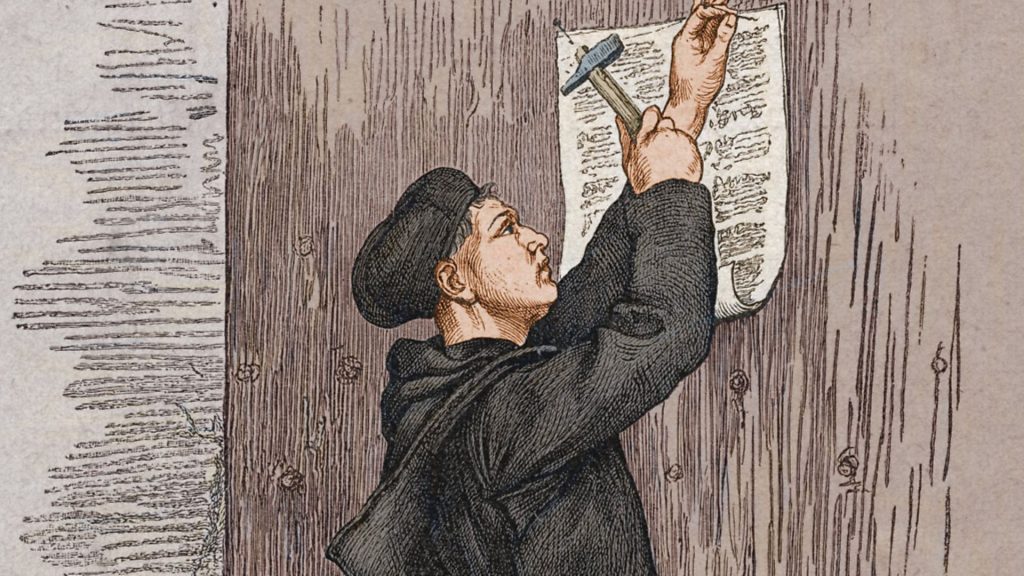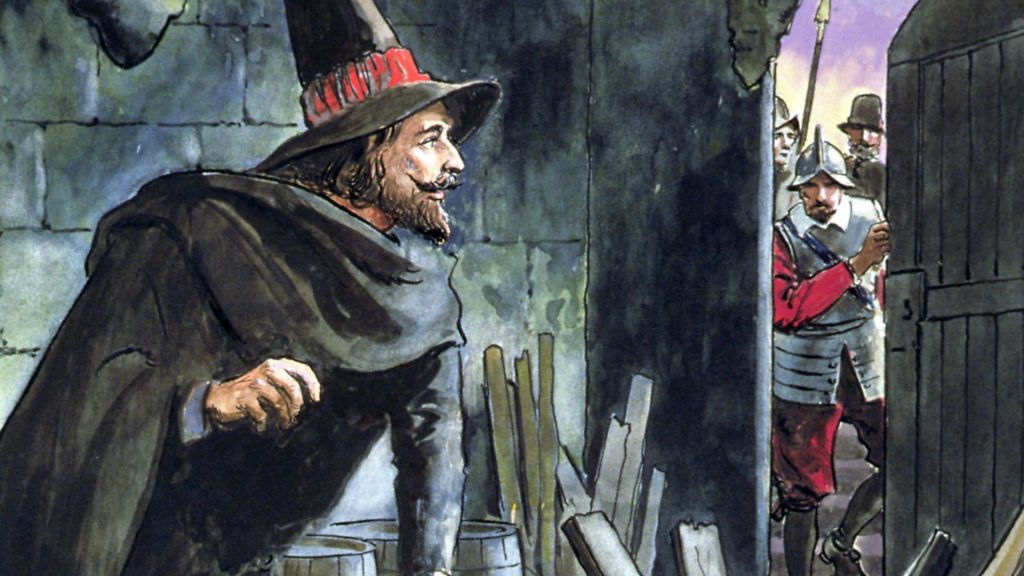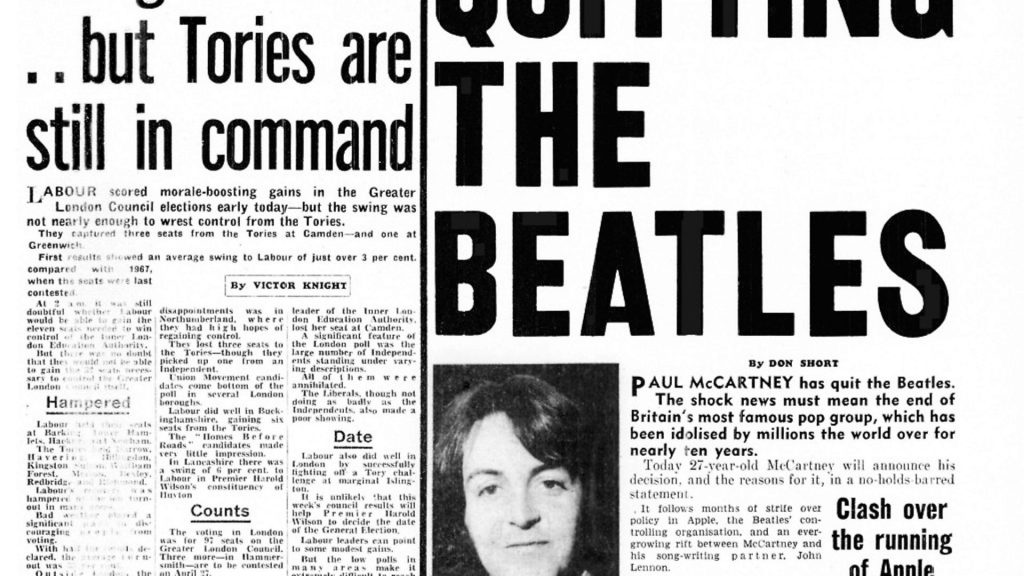
As January 31 – Brexit Day – goes down as a day to be celebrated or commemorated in equal measure, RICHARD LUCK scours the history books for other dates that have polarised opinions.

Creation of the Earth
October 21, 4004BC
In 1650, James Ussher, Archbishop of Armagh and Primate of All Ireland, had a brainwave. For if one was to add up the ages of everyone mentioned in the Bible, surely you’d be able to work out the exact day the Lord created the Earth? So it was that Archbishop Ussher reached for his abacus and got down to some serious counting. Come the final page of Revelation – we assume he skipped the glossary and acknowledgements – Ussher concluded that the Heavens and the Earth were created on Sunday, October 21, 4004BC. Around 9am.
Not surprisingly, there are many who have called into question the likelihood of this being correct, not least the authors Terry Pratchett and Neil Gaiman whose Good Omens begins with a good laugh at the holy man’s expense, after which they explain that creation occurred on the day Ussher suggested, only at 9.13am.

The exact circumstances of the beginning of the Earth have always proved to be something of a bone of contention. Alas, putting a date on it hasn’t done much to resolve those differences of opinion.
Battle of Hastings
October 14, 1066
What is it about October and events of great import? Anyway, autumn was already in full swing by the time William, Duke of Normandy mounted Senlac Hill to do battle with Harold II, King of the Anglo-Saxons. With Harold’s men knackered having both fought off Viking invaders in Yorkshire then marched half the length of the country, it’s remarkable that they took their Norman foes to the limit.

As for whom the invaders’ victory represented good news, one needn’t look beyond its instigator – how relieved William must have been to trade in ‘the Bastard’ for ‘the Conqueror’ on the nickname front. The Norman Conquest was also a good thing for lovers of land surveys and the manufacturers of tapestries. Those less happy with the outcome include me – my middle name is Godwin, derived from Godwinson, and perhaps indicating some claim to the throne if it wasn’t for those meddling Normans.
For the most part, Britons no longer seem too exercised by the Norman Conquest – being descendants of both the victors and the vanquished. But I am certainly not alone in remaining vexed at the events of autumn 1066.
Shortly before the 2016 referendum, the pro-Brexit journalist Quentin Letts, in a 2,000 word article for the Daily Mail, mourned the Anglo-Saxon defeat and reflected how a vote for Leave could be a repudiation of that earlier episode of European integration.
See… even among us wistful Anglo-Saxons, the Battle of Hastings remains a deeply divisive issue.

Martin Luther nails up his 95 theses
October 31, 1517
Yet another October date… It’s hard to pin down the exact day that the Reformation began. However, it was in 1517 on All Hallow’s Eve, that Martin Luther – presumably before a hard night’s trick or treating – marched up to the castle church in Wittenberg and nailed a copy of the Disputation on the Power of Indulgences (aka the 95 Theses) to the door of said building. Or not, as the case might be.
Though many historians doubt that the great theologian visited the Wittenberg branch of Wickes, in order to actually affix his thoughts to the church, what can be confirmed is that October 31, 1517 was the date upon which Luther sent his theses to the Archbishop of Mainz.

Regardless of the differences of opinion over the actual events of the day, the date has been a divisive one ever since. So it was that from that day forward, two schools of religious thought would exist – the new one, Protestantism, arguing that salvation came from within in defiance of the Catholic belief in sacramental confession.
Fortunately, Luther’s words resonated with all and that was the end of the trouble…
The Gunpowder Plot
November 5, 1605

Finally – an alienating event takes place in November! The discovery of Guy Fawkes and his explosive cache beneath the Palace of Westminster would, in years to come, prove a boon for baked potato and toffee apple vendors.
More pertinently, the foiling of Fawkes, Catesby and Co. ought to be cherished by all those who believe the rule of law and the power of debate must take precedence over the gun and the improvised explosive device.
That said, the anniversary became a focus of often violent anti-Catholic fervour throughout the 17th century. This aspect of the celebrations gradually declined from the early 18th century, but the Pope’s restoration in 1850 of the English Catholic hierarchy revived it. It is certainly less evident nowadays, but should you happen upon the picturesque Sussex town of Lewes on Bonfire Night, don’t be surprised if the ‘No Popery’ banners and the burning effigies leave you feeling that this remains a date that divides.
The death of Stephen Ward

August 3, 1963
Hard to believe anyone could revel in a man’s suicide, but many were the members of the establishment who breathed a sigh of relief after the osteopath passed away, four days after taking a barbiturate overdose. Having been found guilty in absentia of living off immoral earnings on July 31, Ward’s desire “to disappoint the vultures” ensured that there could be no appeal against the verdict.
Given how laughable the case was against Ward – a pervert perhaps but clearly neither a ponce nor a pimp – it’s conceivable that he’d have been able to clear his name, an occurrence that would have reignited the scandal which in turn might have led to the likes of John Profumo and Lord Astor being brought before the court. And with Dr Ward’s patients and playmates including Winston Churchill and Sir Colin Coote, editor of the Daily Telegraph, one can but imagine the sacred cows thankful he’d moved on to pastures new.
Ward himself remains a deeply divisive figure – despised at the time of the scandal, his image was later rehabilitated, to some degree. What we ought to make of him is still the subject of strong opinions. His tragic early death – greeted at the time by both sadness and relief – makes it harder to resolve that debate.

1966 World Cup Final
July 30, 1966
While Geoff Hurst’s heroics sent England into paroxysms of joy, they received no such appreciation north of the border. Among the greatest strikers of his day, proud Scot Denis Law was so keen to avoid English football’s day of days that he took to the golf course. “I played golf in Manchester,” he’d later recall. “And unlike Manchester, it was raining. And the guy I was playing was awful. And he beat me.”
Then, as he was walking up the ninth fairway, Denis noticed that his fellow golfers had gathered at the clubhouse windows to leave him in no doubt as to the number of the goals England had scored and the outcome of the game.
“I thought it was the end of the world,” he sighed, some three decades on from the fateful day. Revenge of a kind came the following year when Law inspired Scotland’s 3-2 win at Wembley.
Ever since that day in 1966, England’s singular triumph has been celebrated by their fans to – as Scottish supporters would see it – a tedious degree.
On the other hand, while for the English it might be “50 (and counting) years of hurt” since football came home, the intervening decades have at least provided Scots with opportunities for “so many jokes, so many sneers” at their rivals.
Break-up of the Beatles
April 10, 1970
For some it was another day on which the music died. For others, the fracturing of the Fab Four created fresh opportunities and freed up a whole lot of air time. With John, Paul, George and Ringo busy doing their own things, a path to grandiloquence opened up that Led Zeppelin and The Who couldn’t gallop down fast enough.
The Stones, on the other hand, stopped chasing singles success and retreated to the south of France to record their masterpiece Exile on Main St.
So while that April day meant there would be no more songs from the Fab Four, it also served as a catalytic date at the start of an eventful decade for music. Fifty years on, how you see April 10, 1970, probably depends on your disposition, in terms of whether the glass is half full or half empty.
As a footnote, John Lennon provides another date which divides (between fans of music and justice, and the dim-witted). Released shortly after his murder, his last single, (Just Like) Starting Over was knocked off the Christmas No.1 spot, on December 25, 1980, by, of all things, St Winifred’s School Choir and There’s No One Quite Like Grandma.
Life of Brian hits US cinemas
August 17, 1979
Those lucky yanks received Monty Python’s masterpiece almost three months before we in the UK. And how was the second greatest story every told greeted by our American cousins? Most of them loved it, with Life of Brian becoming the highest grossing British film in North America that year. But if you belonged to a religious community, chances are you spent opening weekend picketing the picture. Pilloried by American religious heavyweights like Father Patrick J Sullivan, Rabbi Abraham Hecht and Robert EA Lee of the Lutheran Council, Brian was considered a very naughty boy indeed.
Fortunately, we in the UK welcomed the comic Messiah with open arms, with the notable exceptions of Malcolm Muggeridge, the Bishop of Southwark and Swansea County Council.
Directed quite wonderfully by the dear departed Terry Jones, Life of Brian split opinion wherever it was shown – hilarious or blasphemous. It was also rejected by the Norwegian censor, prompting Swedish cinema chains to run adverts promoting it as “the film so funny it was banned in Norway”.
Divided nations, divided opinions. Even the Judean People’s Front and the People’s Front of Judea couldn’t reach a consensus.
London awarded 2012 Olympics
July 6, 2005
How could anyone be upset about London being awarded a third Olympic games? OK, if you were one of those people who lived close to the stadium, you could understand concerns about crowd noise. And if you happened to live in Bow’s Lexington Building, the fact the MoD saw fit to stick surface-to-air missiles on the roof was an understandable sticking point.
For the most part, though, Londoners – in fact most Brits – saw the games as nothing but a positive good.
It was only in the wake of that extraordinary opening ceremony and that avalanche of gold that the Games’ impact came into question.
For did the wave of patriotism conjured up by the Olympics encourage and embolden those keen to leave the EU?
With all that has happened since, there has been a definite re-appraisal of that July day when David Beckham, Sir Steve Redgrave, Denise Lewis, Tessa Jowell and others – all in matching tan suits – celebrated in Singapore as the IOC gave London the nod (ahead of favourites Paris – double celebrations!).
Of course, those individuals should shoulder none of the responsibility for the turn of events which followed and one certainly shouldn’t place any blame of Danny Boyle, the man behind the opening ceremony itself. Far better to heap it all on Russell Brand and that inflatable octopus.
Unveiling of Jodie Whittaker as the Doctor
July 16, 2017
The trailer began with images of a cowled figure walking through a wood. The caped figure then slowly lowered its hood to reveal… the first woman ever to play the Doctor! Anyone familiar with science-fiction won’t be surprised to learn that fan reactions to Jodie Whittaker’s hiring were both passionate and extreme.
The naysayers included lifelong fans appalled that the BBC should bow to the PC London elite. But for everyone sickened by that wokest of woke decisions – turning a Time Lord into a Time Lady – there was someone who felt the move long overdue. After all, Steven Moffat had included a female Doctor in his 1999 Comic Relief special, The Curse Of Fatal Death.
The latest front in the culture wars destined to run as long as the TV series, the one thing it’s safe to say is that, whatever’s currently wrong with Doctor Who – the writing, primarily – the Huddersfield native is doing the part proud.
– Do you agree? Email your own suggestions of divisive dates to letters@theneweuropean.co.uk
Warning: Illegal string offset 'link_id' in /mnt/storage/stage/www/wp-includes/bookmark.php on line 357
Notice: Trying to get property 'link_id' of non-object in /mnt/storage/stage/www/wp-includes/bookmark.php on line 37






